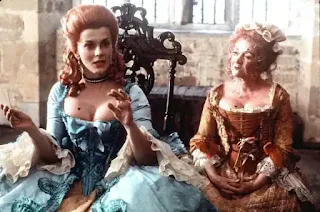It was generally believed that Richardson and
Defoe were great realist writers but this statement was not very true because
it was Henry Fielding who was the greatest one. Henry Fielding paints whatever
he sees therefore, he himself claims:
“I believe, I might aver that I have described nothing more than I have seen.”
Henry Fielding was a great realist writer who
described only truth and nothing but truth. Realism means to portray life in a
realistic manner. There are two types of realism. One of them is to portray and
depict the real life of contemporary society and the other type is to portray
the essence of reality true for all ages. In Fielding's ‘Joseph Andrews’, we
can find the both types of realism i.e., contemporary and universal. Fielding's
novel shows contemporary life in its fullness and besides this, such vices and
absurdities have also been exposed and ridiculed as are universal and can be
found everywhere in the world. The literary pieces which have a universal
appeal are immortal and cannot be forgotten, whereas the literary pieces which
deal only with the contemporary life loose their charm after sometime.
Fielding's realism is universal and tells us
about the true nature of human beings of all ages. Fielding's realism has won
wide acclaim throughout centuries. His realism can be discussed in detail as
followings.
The selfishness of the people of the eighteenth century has been exposed in a delightful, amusing, convincing and elaborate manner. The amorous advances of Mrs. Slipslop and Lady Booby show the immorality and selfishness of the rich.
Joseph is dismissed from his job, and
he is forced to set out on a journey. He meets misadventure on the way and some
robbers deprive him of his possessions and strip him off his clothes. They
throw him into a ditch to die by inches. Then comes the stage-coach episode
which shows clearly the selfishness of the people. All the passengers look very
scornfully at the poor, naked, injured and wretched Joseph. None of the
passengers is ready to make any sort of sacrifice or to help him in the
miserable condition.
The poor postillion comes to help him but
afterwards we are informed that he was deported for stealing a hen-roost. It
means that it was a society that was not ready to spare a man who committed a
venial a society which looked crime. In fact;
“It was a society who looked scornfully at minor crimes like swearing in public or stealing minor objects, but accepted the major crimes without battling an eye lid.”
The passengers show utmost indifference to the
poor creature. The lady who pretends to be a modest, ogles at the naked fellow
through the sticks of her fan. The lawyer agrees to help the poor fellow just
in order to avoid legal intricacies and complexities.
Joseph is conveyed to an inn where we meet a
number of callous human beings. Mrs. Tow-Wouse is not ready to let her husband
lend an old shirt to a man who was on the verge of death and was shivering with
'cold. An immoral and vulgar young girl Betty helps Joseph.
Fielding gives a detailed description of
professional classes. The surgeon is a ruthless and relentless person. He
refuses to get out of his comfortable bed just to examine a mere foot passenger
who is not in a position to pay his fees. Parson perhaps is not able to utter
some words on the funeral occasion without preparation. Parson Trulliber is
more interested in hog dealing than religion or church. The surgeon has a
scanty knowledge of medicine. He is so unscrupulous that he violates the very
first rule of humanity and medical profession by refusing to examine a
penniless foot passenger.
Mrs. Tow-Wouse is an extremely relentless
lady. She is of the view that they should not pay any attention to the needy
and miserable persons. She cries scornfully;
"Common charity a f -- t."
She says to her husband that charity means;
“To provide ourselves and our families and I and mine are not going to be ruined by your charity, I assure you.”
Fielding has also given a realistic
description of the class distinction of society. There was a distinct and
have-nots. The rich division between haves considered themselves superior to
the poor. They are such haughty and proud that they do not talk to the poor.
They do not recognize the poor in the public though they have relations with
them in private. Even Mrs. Slipslop by virtue of being a mistress of Lady Booby
does not recognize Fanny. Peter Pounce said that it was rather vice than virtue
to help the poor. Such were the shocking conditions of the eighteenth century.
Sir Thomas Booby is a representative of the
corrupt politicians. The Church, the politics and every other field was full of
corruption. Fielding gives detailed description of different characters in a
realistic and convincing manner. The town society also becomes a butt of
ridicule and satire. The stories of Mr. Wilson and Leonara are also helpful in
making us able to make a reasonable conclusion about the people of town society.
The people of the town society were vulgar and voluptuous. They were
unscrupulous and had ambition and aptitudes other than moral and religious. The
ladies of the eighteenth-century society used to spend their times in amorous
affairs.
So, the discussion enables us to reach a right conclusion that Fielding was a great realist writer. He gives a realistic description and convinces the readers. He is quite justified in saying that he did not present what he did not see and he presented only those things that came in the range of his sight. His sarcastic, ironic and masterly pen did not let any field of life escape its range.


No comments